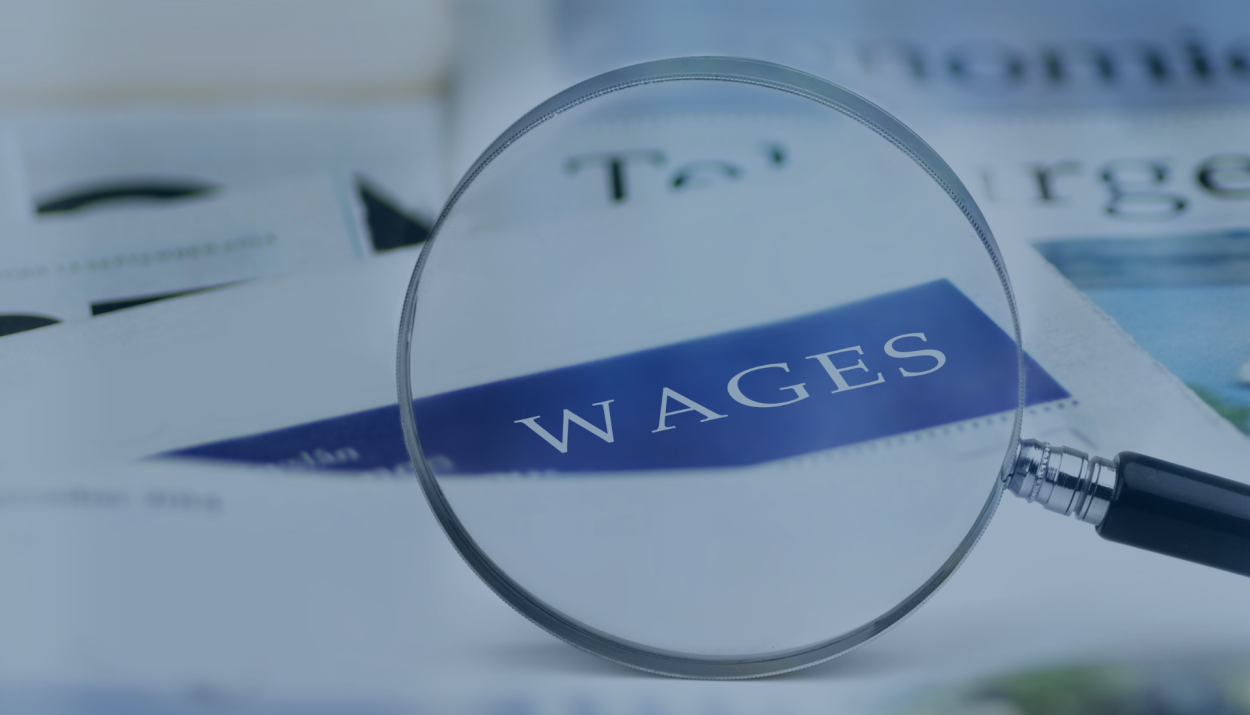In early May 2025, Costco quietly made headlines by announcing a further pay rise for its frontline staff, on top of previously elevated wages. This earned them significant plaudits not just from employees, but from consumers too. This move isn’t merely philanthropic: research shows that 81% of consumers say they must trust a brand before buying from it, and nearly 90% are willing to pay more for that trust . But what does “fair pay” really mean in today’s economy, and why is it so vital to a firm’s reputation? The answer is evolving. No longer just an ethical gesture, equitable wages have become a strategic asset, reinforcing brand loyalty, signalling purpose and shaping public trust in an era where stakeholders demand more than lip service.
The Reputation Dividend
Published wage hikes aren’t just nice headlines, they’re a carefully calculated investment in a company’s “reputation dividend”: the long‑term payoff earned from solid brand esteem. Reputation, after all, is a corporate currency that buys customer loyalty, boosts employee retention and offers resilience when storms hit.
Take Costco, as mentioned above, for instance. Staff there rate pay and benefits at 4.2/5, compared to just 3.3 at Walmart, yet Costco’s profit per employee and customer loyalty metrics outshine its retail rival’s, despite its higher wage costs. This isn’t mere anecdote. According to a 2025 Salsify study, 87% of shoppers are willing to pay more for brands they trust, and transparent pay policies directly fuel that trust.
EY analysis also shows how AI‑enhanced transparency is redefining the customer–brand-trust equation. Firms that publish wage bands and openly report on pay equity tap into this dividend, turning ethical practice into economic power. In short, fair pay isn’t a cost, it’s a reputation asset, earning goodwill today and loyalty tomorrow.
The Unexpected PR Strategy
In the post‑pandemic era, brand narratives have shifted from polished promises to visible actions, and wages are now a central plotline in that narrative. Consumers expect companies to weave fair pay into their brand story, not hide it behind rhetoric. That’s why businesses like Ben & Jerry’s don’t just speak up on social justice, they prominently highlight their living‑wage policies in ad campaigns such as “Make Some Motherchunkin’ Change!” for all it signifies about internal fairness.
Similarly, brands like Everlane have built their identity on “radical transparency”, publishing cost breakdowns and wage structures to prove they’re not simply cashing in on ethics. Today’s Gen Z shoppers, in particular, expect authenticity over spin. Research shows 47% of UK Gen Z reject brands that champion irrelevant causes, while over half say social purpose influences their purchase choices. That’s why PR is no longer reactive, it’s proactively shaping pay narratives, weaving equity into both recruitment messages and social feeds. In effect, wage ethics have become a powerful, proactive PR tool that can earn trust, engagement and, ultimately, advocacy.
From Payroll to Purpose
When companies revise their wage policies, they’re doing more than adjusting numbers, they’re signalling what they truly value. Linking pay to mission is increasingly seen as a tangible reflection of an organisation’s ESG commitment. For example, Tony’s Chocolonely ensures cocoa farmers receive a living income through its Living Income Reference Price, cementing purpose at every level of their supply chain. Their so‑called “mission lock” further hardwires this ethos into the corporate structure.
Authenticity matters. Firms accused of performative fairness, where wage policies simply tick ESG boxes, risk reputational damage. In contrast, purpose-led pay structures truly reshape hierarchies: Patagonia, various B Corps and mission‐driven social enterprises increasingly tie bonuses and raises to measurable environmental or social outcomes. According to Sustainalytics, although 76% of major firms now embed ESG metrics in executive pay, fewer than 13% disclose precise, pre‑defined targets, indicating a gap between rhetoric and reality.
The rise of “purpose‑led pay” isn’t just moral, it’s structural. By linking remuneration to social impact, firms dismantle traditional pay hierarchies. When remuneration aligns with mission, wage policy becomes a statement: this business stands for more than profit.
Stakeholder Spotlight – Employees and Investors
Fair pay is no longer a footnote, it’s a headline for employees and investors alike. Jobseekers today scrutinise wage fairness and transparency, not simply total compensation. 55 % of Norwegian job adverts now include salary information to boost employer attractiveness, showing pay clarity is a competitive edge.
Meanwhile, major investors are tuning in too. BlackRock’s 2024 Stewardship Report reveals nearly 30 % of its voting engagement concerned “impacts on people”, including pay equity alongside climate and board quality. As BlackRock’s Larry Fink emphasised, ESG credentials, including wage data, now inform long-term investment choices.
Shareholder activism is no longer just about CEO pay. Resolutions increasingly demand minimum wage policies and equitable pay scales within companies’ broader workforce. PwC and WageIndicator’s 2025 “Metrics That Matter” report notes: “disclosure of fair wage data is becoming a key signal of social responsibility for investors”.
Edelman’s Trust Barometer similarly underscores this, finding that “74 % of employees trust businesses that pay fairly and reveal salary structures”. By spotlighting wage transparency and equity, companies attract top talent and reassure investors that they’re serious about ESG, and not just ticking boxes.
The Paycheck Effect and The Trust Equation
Public trust in corporations is notoriously fragile, yet fair wages remain one of the few dependable tools to rebuild it. According to the 2024 Edelman Trust at Work report, employers that ensure wages keep pace with the cost of living see significantly higher loyalty and trust among employees. Furthermore, Edelman’s 2025 Trust Barometer finds that business remains the most trusted institution globally, though public grievance is rising. Tangible actions, such as pay fairness, can undoubtedly counter scepticism.
Wage scandals and stories of exploitative pay now gain traction rapidly on social media, eroding corporate reputation overnight. Conversely, companies that adopt transparent, equitable wage policies build “trust capital”, the goodwill that pays dividends in brand credibility. Advanced AI-driven wage audits and social-listening tools are becoming increasingly prevalent. For instance, AI platforms can spot pay disparities in real time, while social-listening systems monitor public sentiment around pay practices. In today’s scrutiny-rich environment, fair pay is no longer optional, it’s an essential component of the Trust Equation.
Fair pay isn’t just morally sound either, it’s smart business. As minimum wage rises to £12.21 in the UK from April 2025, alongside growing international pay‑transparency laws, companies that act proactively are gaining a distinct edge. Meanwhile, global supply‑chain accountability, spurred by EU regulations and the adoption of AI in wage monitoring are reshaping how firms control pay practices and protect reputation.
Looking ahead, legislative trends, from expanded transparency mandates to living‑wage benchmarks, are likely to make equitable pay the norm rather than the exception. Add in AI‑driven wage audits and social listening tools, and it’s clear that monitoring pay fairness will soon be as fundamental as tracking financial performance.
If companies want to remain relevant, they must think beyond the paycheck by aligning pay with purpose. Those who invest in fair, transparent wage structures not only bolster workforce loyalty and consumer trust but also set themselves apart in an era where reputation truly counts.
And what about you…?
- How does your organisation currently define and evaluate fair pay, and is that definition transparent to employees and stakeholders?
- In your view, what role should technology (e.g. AI audits or pay analytics) play in ensuring wage fairness within your organisation or sector?







